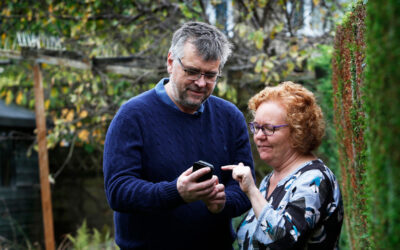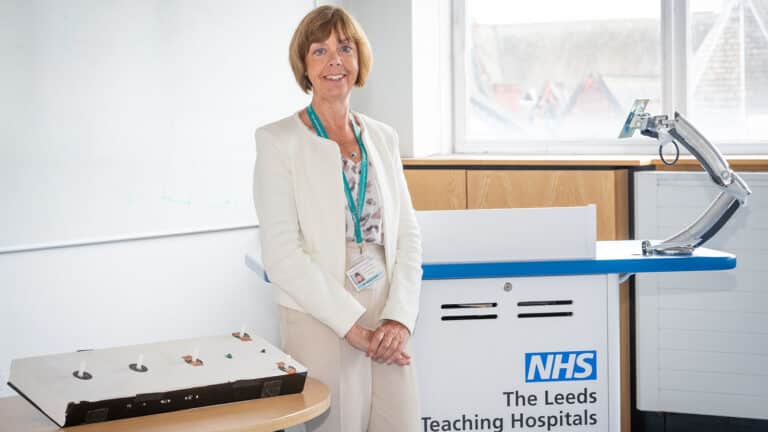Clinicians and researchers in Leeds have invented a new motion detection tool to help identify potentially life-changing treatments for progressive MS and neurodegenerative conditions.
The project is a collaboration between Leeds Teaching Hospitals NHS Trust and the departments of psychology and engineering at the University of Leeds.
Their system measures upper limb functions by using 3D motion technology to capture finger and wrist markers as patients pick up, move and place objects across a board.
“We see the device as having significant applications in both research trials and clinical settings,” said Professor Helen Ford, Consultant Neurologist and the Research Lead for Neurosciences at Leeds Teaching Hospitals NHS Trust.
“We are doing more trials with people with progressive MS and having a sensitive measure of arm function, cognition and thinking is becoming more important. This is especially so if the drugs we are using are shown to be effective because it refines the outcomes.
“The tool could also be really useful for rehabilitation as well as it provides a much better understanding of arm function. Physiotherapists and occupational therapists can monitor improvement, deterioration and the value of different approaches.
“And because the device is not specific to MS, it could have relevance to other neurodegenerative conditions such as motor neurone disease or Parkinson’s.”
There are an estimated 130,000 people with multiple sclerosis in the UK with 7,000 people newly diagnosed with the condition every year, according to the MS Society.
The long-term condition affects the brain and spinal cord, causing problems with vision, movement, sensation and balance. Currently, there are no treatments that stop its progression.
An evaluation led by clinical research fellow Linford Fernandes, a neurology registrar at Leeds Teaching Hospitals NHS Trust, and funded by Leeds Hospitals Charity found the new tool can be used to detect progression in dysfunction sooner than current clinical measures.











